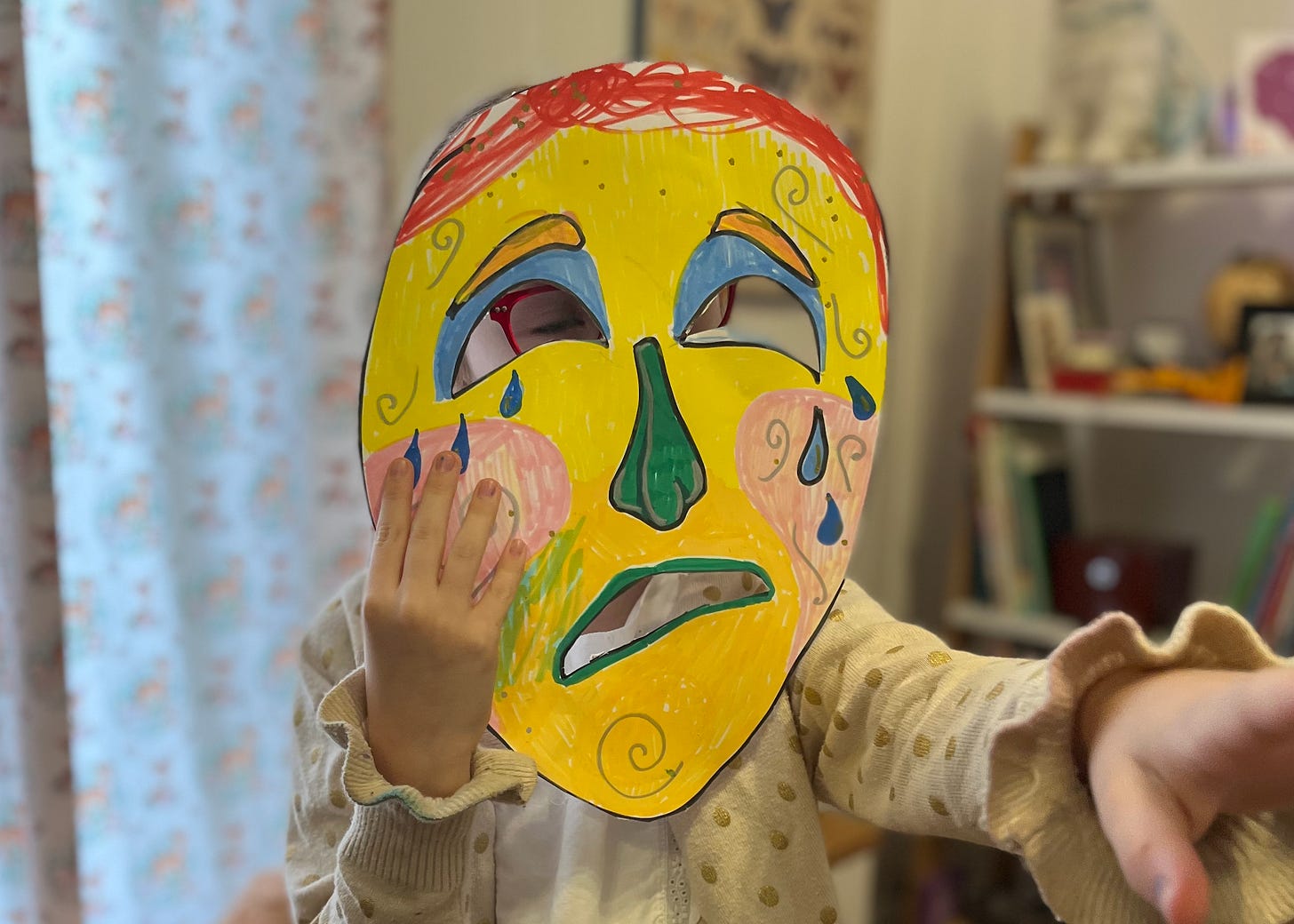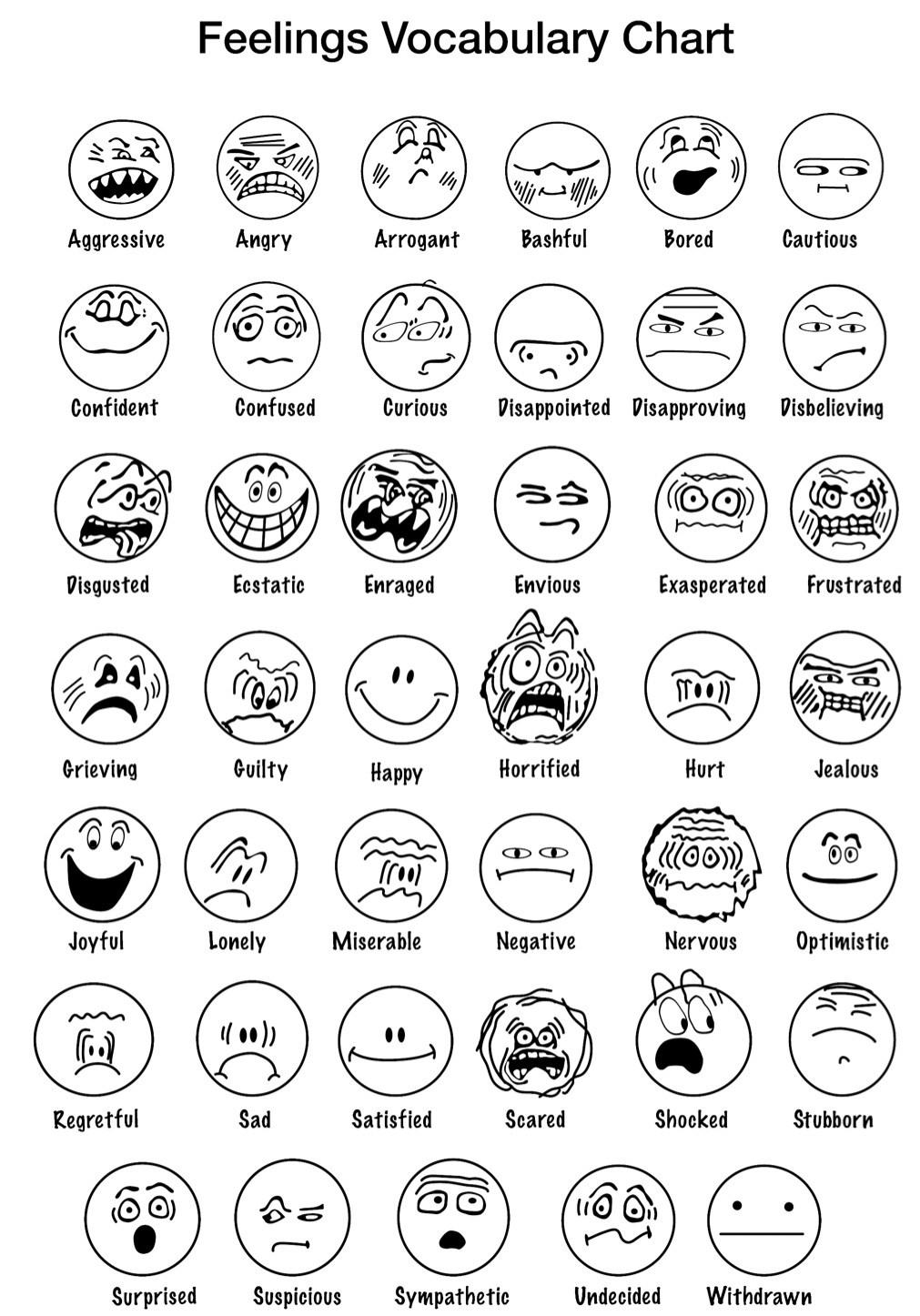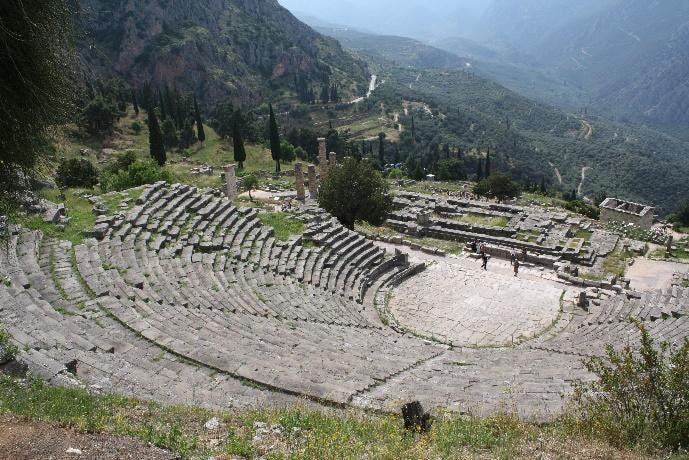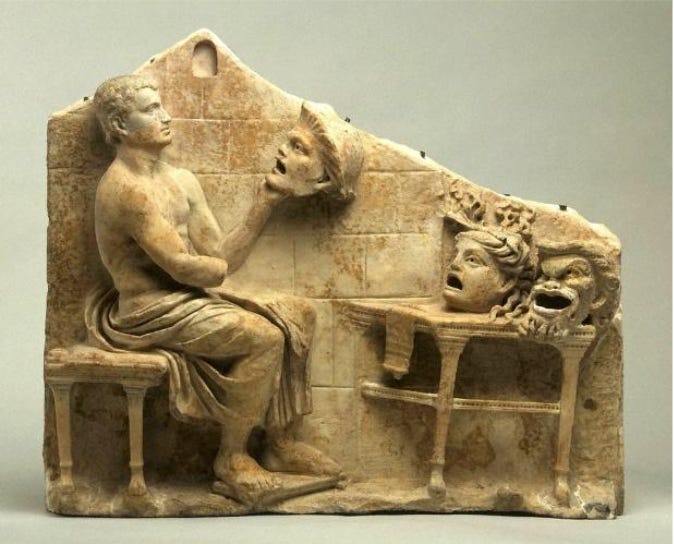Dear Classical Wisdom Kids,
This week’s lesson is dear to my heart... because I LOVE theater! I have been acting, directing, putting on puppet shows and musical re-enactments for as long as I can remember. I proudly called myself a Thespian... I even founded a theater company 20 years ago, which is still going strong.
And yet, for the longest time, I didn’t even know why we used the term Thespian... or that this word came from the ancient world.
Today’s lesson will look at the birth of theater many, many, many years ago... but we’ll also talk about feelings and how we can show our emotions. The ancient Greek actors used masks to emphasize expressions. Through re-enactment, we can practice how emotions are shown.
Indeed, it is a very important social skill to teach children how to read faces and body language to know how others are feeling.
In fact, when I grew up, we had the chart below on our refrigerator and practiced every day. Some might seem very simple and easy... others, not so much! Perhaps this exercise is part of the reason I became a Thespian:
Please enjoy learning the history of theater below, along with some thought provoking discussion points as well as fun craft and game ideas.
All the best,
Anya Leonard
Founder and Director
Classical Wisdom and Classical Wisdom Kids
Thespis and the Birth of Theatre
By Sean Kelly
Have you ever been to a play?
Every year, thousands and thousands of plays are performed all across the world. But long ago, there was a time when plays didn’t exist. People used to listen to stories being told and sung, but they didn’t perform them on a stage.
It was in ancient Greece that plays were first invented. They were first invented by a man called Thespis. He was a poet, but he wanted to find new ways to tell stories!
People used to mainly just sing songs to tell stories, but Thespis added extra parts where he would speak. He would pretend to be different people from the story when he was speaking. He even used masks to become more like them! Thespis was the first person to ever do this, and people who act in plays nowadays are called thespians because of him.
Thespis would travel around in a wagon with his masks. He would travel across ancient Greece putting his plays on in different cities.
He traveled with a group of friends who would sing and dance as part of his plays. After each song he would come out in a mask and act out the story.
Thespis’ new ideas were very exciting to the Greeks. He became very popular! Over time, plays became very important to the Greeks.
Most plays these days take place inside, but the Greeks would put them on outside. Plays would be held at special places called amphitheaters. The people would all sit in a semi-circle looking down into the stage in the center.
The people in the plays started to wear special costumes and masks to help with their performances. They used to wear giant masks so people far away in the crowd could see if the character was supposed to be happy or sad or shocked.
Lots and lots of different people started writing plays. Most of the plays in ancient Greece were stories from Greek mythology. They told stories about exciting heroes. Like the story of when Hercules rescued a woman from the underworld... Or the time a phantom pretended to be Helen of Troy!
Even as more and more plays were produced, people liked Thespis’ plays the best. Thespis was given an award for writing the best play!
His ideas must have sounded strange when he first started. No one had ever done anything like this before... but Thespis believed in himself and his ideas. They became very popular and changed the world.
If you’ve ever had fun at a play, you have Thespis to thank for it!
Let Little Readers Read!
Download the printable worksheet, including the word bank, HERE:
Keep reading with a 7-day free trial
Subscribe to Classical KIDS to keep reading this post and get 7 days of free access to the full post archives.







